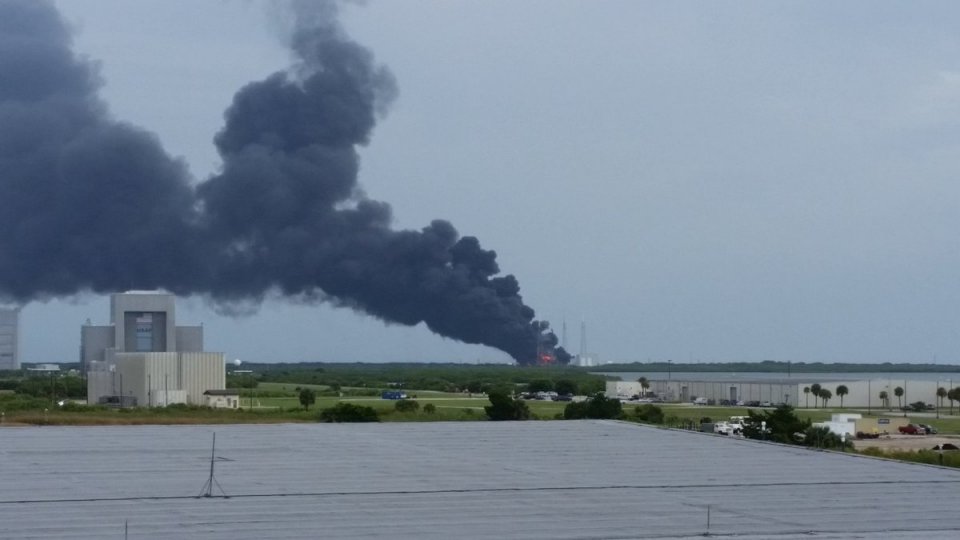Loss of Amos 6 shakes Israeli satellite industry
DEBKAfile Special Report September 2, 2016, 8:48 AM (IDT)
Tags:
Israel, Israeli satellite, Cape Canaveral, SpaceX, US, China,
Israel’s satellite industry, one of the world’s eight, was set back for years by the powerful explosion Thursday afternoon, Sept. 1, of the SpaceX Falcon 9 rocket on its launch pad at Cape Canaveral Air Force Station two days before Saturday’s launch of the Amos 6 communications satellite.
The destroyed satellite, weighing 5.5 tons, was scheduled to go into the orbital position of four degrees West longitude and designed to provide direct satellite data services, including access to Facebook’s Internet project, to remote parts of Africa as well as the Middle East and Europe. The satellite was to send out data at high speed within a frequency range of 26.5 GHZ to 40 GHZ.
Developed for Spacecom by Israel’s Aerospace Industries at an estimated cost of $200, a deal for its acquisition by the Chinese communications company Beijing Xinwei Technology was contingent on the satellite’s successful launch into orbit Saturday.
The cause of the explosion was not clear but it happened at the start of the Falcon 9 rocket’s engines’ preparations for the launch.
The Falcon 9, as tall as a 20-storey building, was chosen for the launch because of its low cost relative to its high success in repeated use. The US SpaceX company specializes in launching payloads and satellites into space. Owned by former Israeli Elon Musk, it is a sister company of electric car producer Tesla Motors and energy company Solar City.
In November 2015, Spacecom lost contact with the satellite’s predecessor Amos 5 that was produced by Russia and launched from Kazakhstan.
Spacecom may face a fine of 15 percent of the Chinese acquisition deal. The company’s stock fell by about nine percent following the news of the explosion and the destruction of the satellite.
The loss of the Amos 6 has set Israel’s satellite development and production industry and other projects back by two to three years, said the head of the Israeli Space Agency, Yitzhak Ben Yisrael. He expressed concern about the future of the industry that employs hundreds of highly-skilled staff.





 kể cả khối LATO; còn lý do khác e k tham gia nên k biết
kể cả khối LATO; còn lý do khác e k tham gia nên k biết  E dự là lỗi nhiều quá k dám phô ra
E dự là lỗi nhiều quá k dám phô ra  vì nếu F22 hơn F35 rất nhiều mà làm dc rồi thì chả có lý do gì mà k làm dc F35 cả
vì nếu F22 hơn F35 rất nhiều mà làm dc rồi thì chả có lý do gì mà k làm dc F35 cả 









 chỉ đến thế thôi
chỉ đến thế thôikể cả khối LATO; còn lý do khác e k tham gia nên k biết
E dự là lỗi nhiều quá k dám phô ra
vì nếu F22 hơn F35 rất nhiều mà làm dc rồi thì chả có lý do gì mà k làm dc F35 cả





